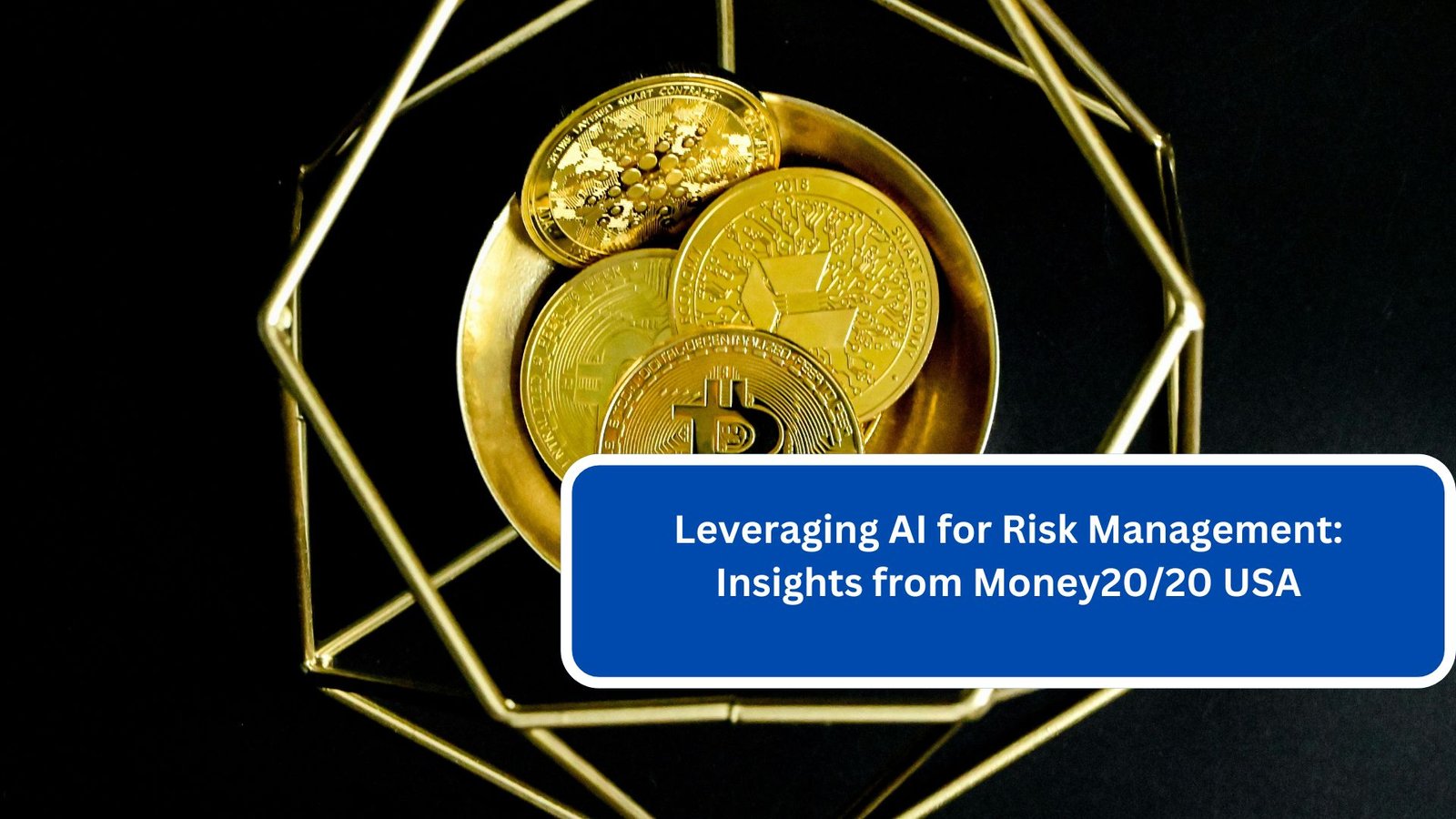At Money20/20 USA, the spotlight was on how artificial intelligence (AI) is transforming risk management in the financial services sector. As the industry grapples with evolving threats, regulatory pressures, and the demand for operational efficiency, AI is emerging as a pivotal tool. This article explores key insights shared at the conference about leveraging AI to enhance risk management practices across the financial landscape.
The Growing Complexity of Risk in Finance
The financial industry faces a multitude of risks, including credit risk, market risk, operational risk, and compliance risk. Each of these risks has become increasingly complex due to factors such as globalization, technological advancements, and shifting consumer behaviors. The traditional methods of risk assessment often fall short in addressing these complexities.
At Money20/20 USA, industry experts emphasized the importance of adopting advanced technologies, particularly AI, to navigate this intricate risk environment. By harnessing the power of AI, financial institutions can improve their risk assessment processes, make more informed decisions, and enhance their overall resilience.
AI-Powered Predictive Analytics
One of the most significant advantages of AI in risk management is its ability to leverage predictive analytics. AI algorithms can analyze vast amounts of historical data to identify patterns and trends that may indicate potential risks. This capability enables financial institutions to foresee risks before they materialize and take proactive measures.
During the event, speakers highlighted the role of AI in credit risk assessment. Traditional credit scoring methods often rely on limited data points, which can lead to inaccurate assessments. AI, on the other hand, can evaluate a wider range of factors, including alternative data sources such as transaction histories and social media behavior, to provide a more comprehensive picture of a borrower’s creditworthiness.
For instance, an AI-driven model might identify that a customer with a non-traditional credit history has a strong ability to repay a loan based on their consistent cash flow and spending habits. This allows institutions to extend credit to previously underserved populations while managing risk effectively.
Real-Time Risk Monitoring
In an era of rapid technological change, the ability to monitor risks in real time is essential for financial institutions. Money20/20 USA showcased how AI can enable continuous risk monitoring, providing organizations with up-to-the-minute insights into their risk exposure.
AI systems can analyze real-time data from various sources, including market fluctuations, transaction activities, and external factors such as economic indicators. This real-time analysis allows institutions to respond swiftly to emerging risks, making necessary adjustments to their risk management strategies.
For example, during periods of market volatility, AI can flag potential issues related to liquidity or credit exposure, allowing risk managers to take immediate action. This proactive approach minimizes potential losses and enhances overall risk management effectiveness.
Enhancing Compliance and Regulatory Risk Management
Compliance risk is another critical area where AI is making significant strides. Financial institutions are under increasing pressure to adhere to a complex web of regulations, and non-compliance can result in severe penalties. At Money20/20 USA, the discussions highlighted how AI can streamline compliance processes and improve regulatory risk management.
AI technologies can automate the monitoring of regulatory changes, ensuring that institutions stay up to date with evolving compliance requirements. Furthermore, AI can analyze transaction data to identify suspicious activities, helping institutions detect potential money laundering, fraud, and other illicit behaviors.
By employing AI-driven compliance solutions, financial institutions can reduce the manual effort required for compliance monitoring while enhancing accuracy. This not only mitigates regulatory risk but also frees up resources for strategic initiatives.
Risk Mitigation Through Scenario Analysis
Effective risk management requires the ability to simulate various scenarios and assess their potential impact on an organization. AI can enhance scenario analysis by enabling institutions to model complex financial environments and test different risk factors.
At Money20/20 USA, experts discussed how AI can create sophisticated models that account for a multitude of variables, from interest rate changes to geopolitical events. By running simulations based on these models, financial institutions can better understand their vulnerabilities and develop robust risk mitigation strategies.
For instance, a bank might use AI to simulate the effects of a sudden economic downturn on its loan portfolio. By analyzing potential outcomes, the institution can devise contingency plans to safeguard its assets and ensure stability.
Automating Risk Management Processes
Automation is another critical benefit of integrating AI into risk management. Many risk assessment processes involve repetitive tasks that can be time-consuming and prone to human error. AI can automate these processes, leading to greater efficiency and accuracy.
During the event, the emphasis was placed on how AI can streamline tasks such as data collection, analysis, and reporting. Automated systems can quickly gather and process data from various sources, generating reports that provide valuable insights for risk managers.
By automating risk management processes, financial institutions can reduce operational costs, improve response times, and allocate resources more effectively. This ultimately leads to a more agile and responsive risk management framework.
Ethical Considerations and Challenges
While AI presents numerous opportunities for enhancing risk management, it also raises ethical considerations and challenges. At Money20/20 USA, experts discussed the importance of transparency and accountability in AI-driven decision-making.
Financial institutions must ensure that their AI algorithms are fair, unbiased, and explainable. This is particularly important in risk assessment processes, where decisions can have significant implications for customers. Institutions need to be vigilant in monitoring AI systems for potential biases that could lead to discriminatory practices.
Additionally, data privacy and security remain paramount concerns. As financial institutions leverage AI to analyze vast amounts of customer data, they must implement robust data protection measures to safeguard sensitive information.
The Future of AI in Risk Management
The discussions at Money20/20 USA highlighted a clear trajectory for the future of AI in risk management. As AI technology continues to advance, its applications in finance will expand, offering even greater capabilities for risk assessment and mitigation.
In the coming years, we can expect to see increased integration of AI with other emerging technologies, such as blockchain and the Internet of Things (IoT). These advancements will create new opportunities for enhancing risk management processes and improving overall financial resilience.
Moreover, as regulatory frameworks evolve to address the complexities of AI, financial institutions will need to adapt their risk management strategies accordingly. This will require a commitment to ethical AI practices and a focus on transparency and accountability.
Conclusion
The insights shared at Money20/20 USA underscore the transformative potential of AI in risk management. By leveraging AI-driven predictive analytics, real-time monitoring, and automation, financial institutions can enhance their ability to identify and mitigate risks effectively. As the financial landscape continues to evolve, the integration of AI will be critical in ensuring that organizations can navigate complexities and thrive in a rapidly changing environment. The future of risk management is undoubtedly intertwined with AI, offering exciting possibilities for improved security, compliance, and operational efficiency in the financial services sector.

